Entry Category: Law
Wright, Charles (Execution of)
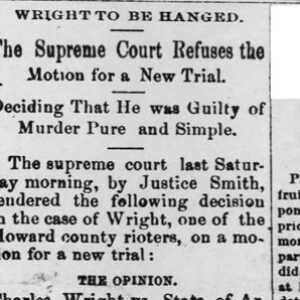 Charles Wright Execution Story
Charles Wright Execution Story
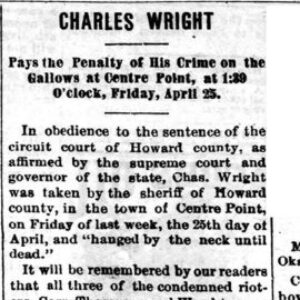 Charles Wright Execution Story
Charles Wright Execution Story
Wright, Susan Webber
aka: Susan Webber Carter
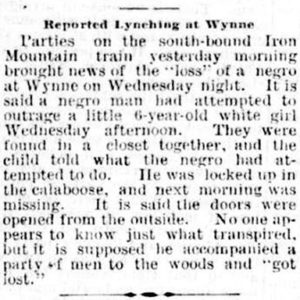 Wynne Lynching Article
Wynne Lynching Article
Wynne Lynching of 1892
Wynne, Robin French
Yancey v. Faubus
Yancey, William (Lynching of)
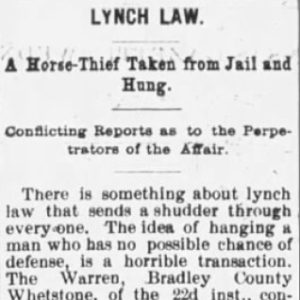 William Yancey Lynching Article
William Yancey Lynching Article
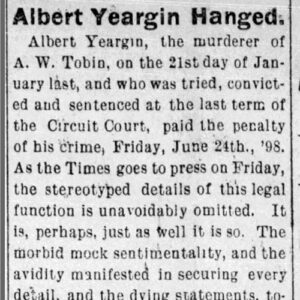 Yeargin Execution Article
Yeargin Execution Article
 Archibald Yell Law Office
Archibald Yell Law Office
Yonley, Thomas D. W.
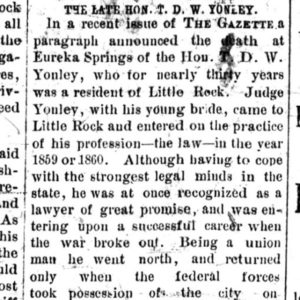 Thomas D. W. Yonley Death Announcement
Thomas D. W. Yonley Death Announcement
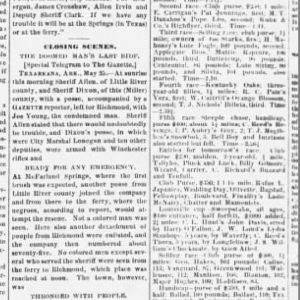 Young Execution Story
Young Execution Story
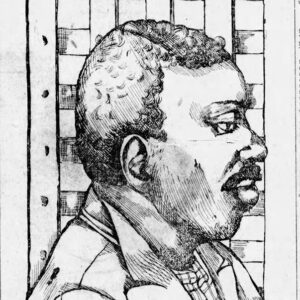 Charles Young
Charles Young
Young, Charles (Lynching of)
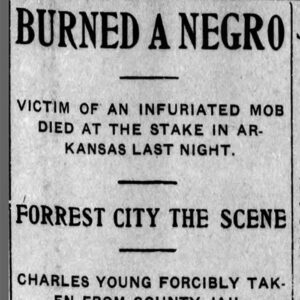 Charles Young Lynching Story
Charles Young Lynching Story




